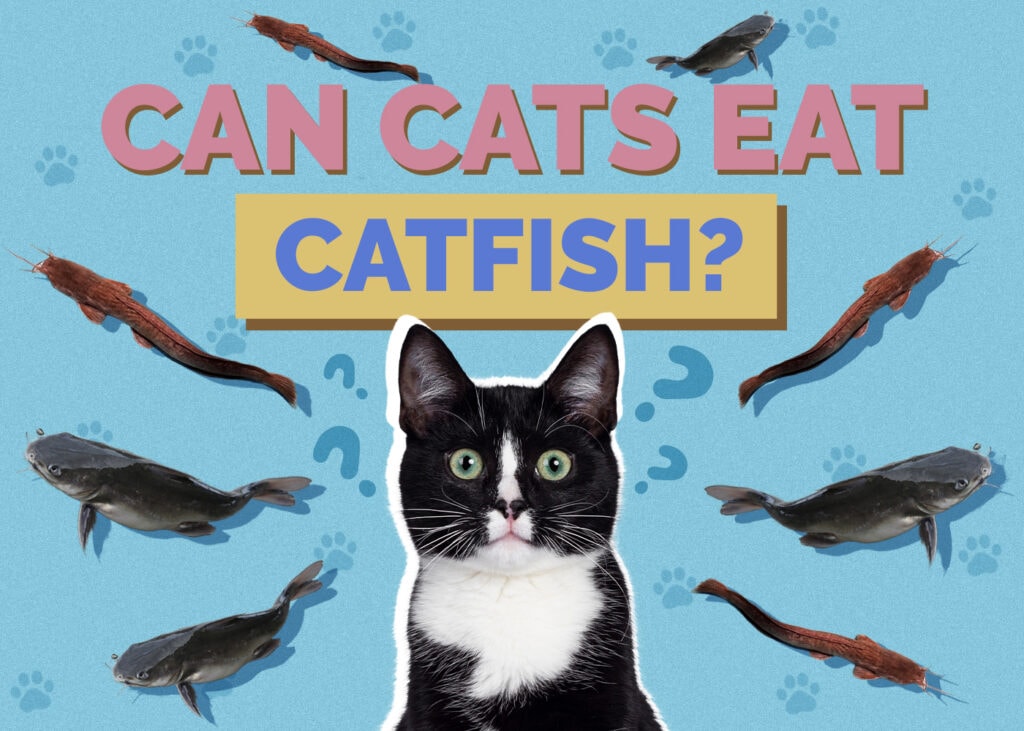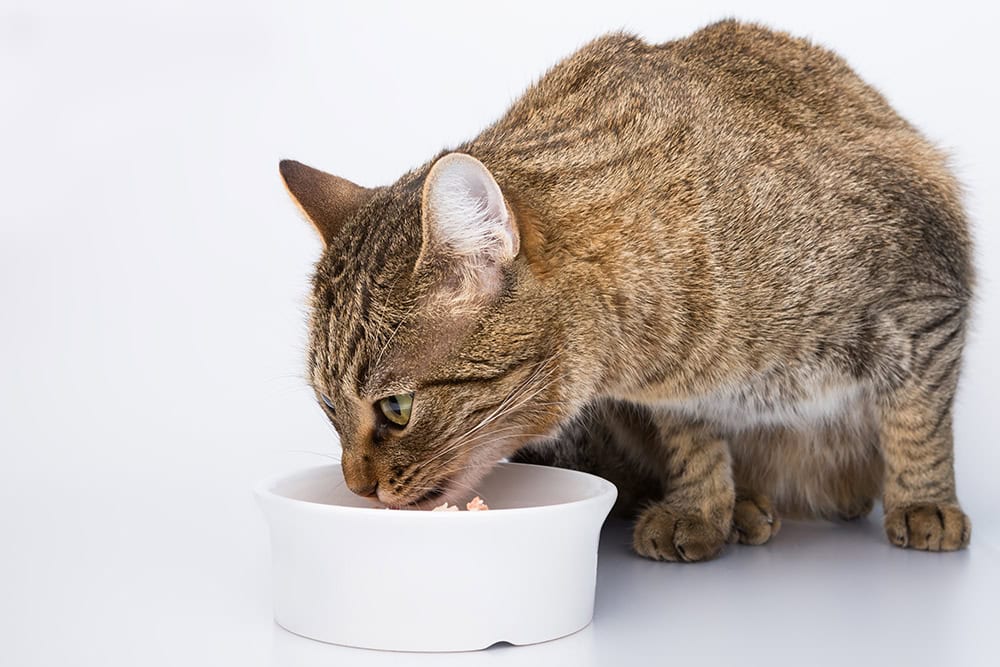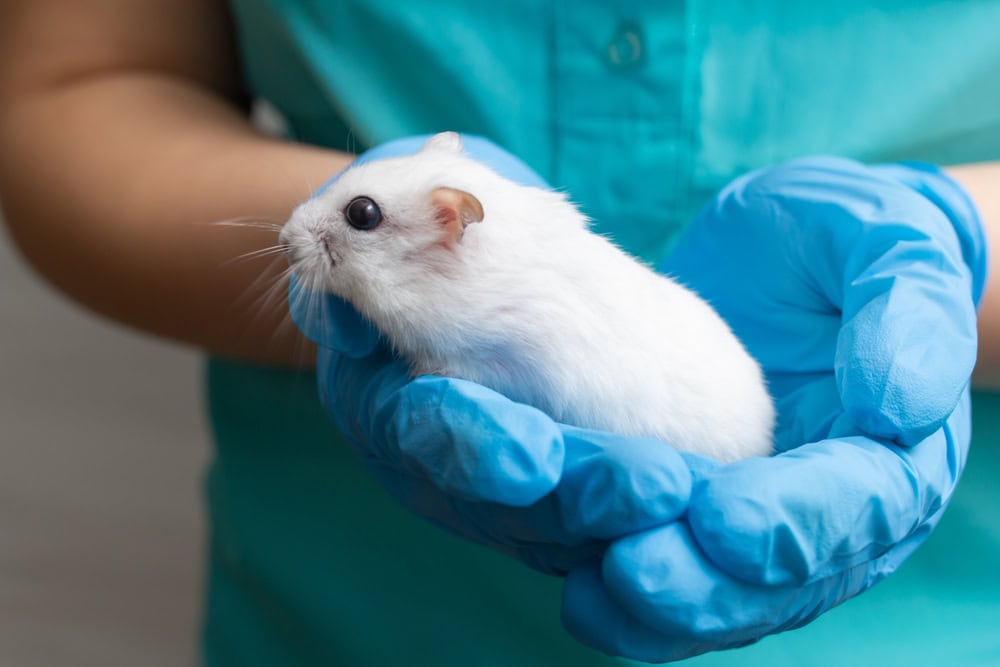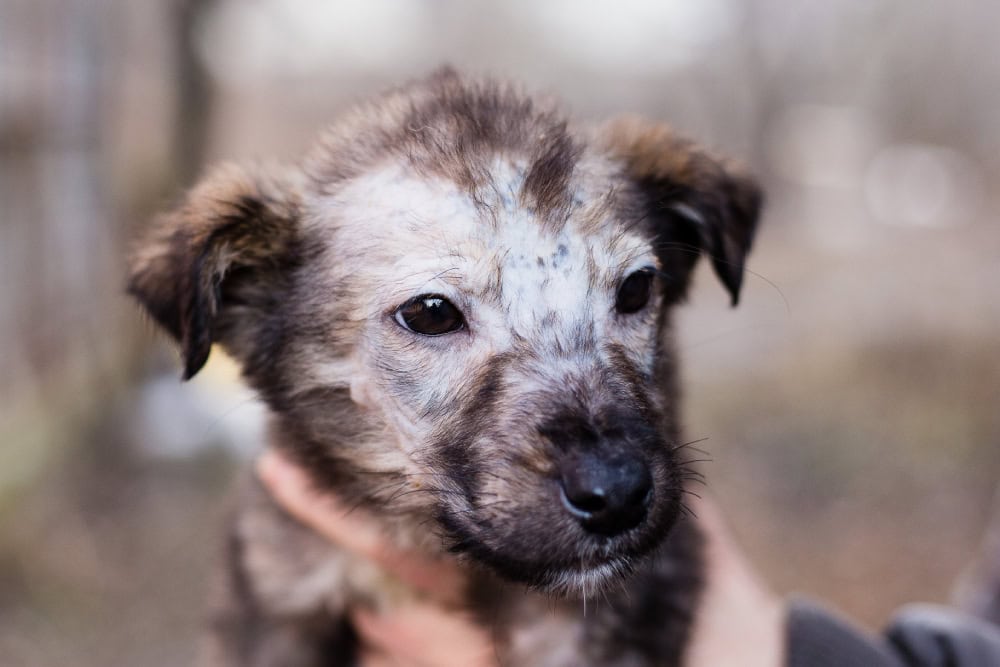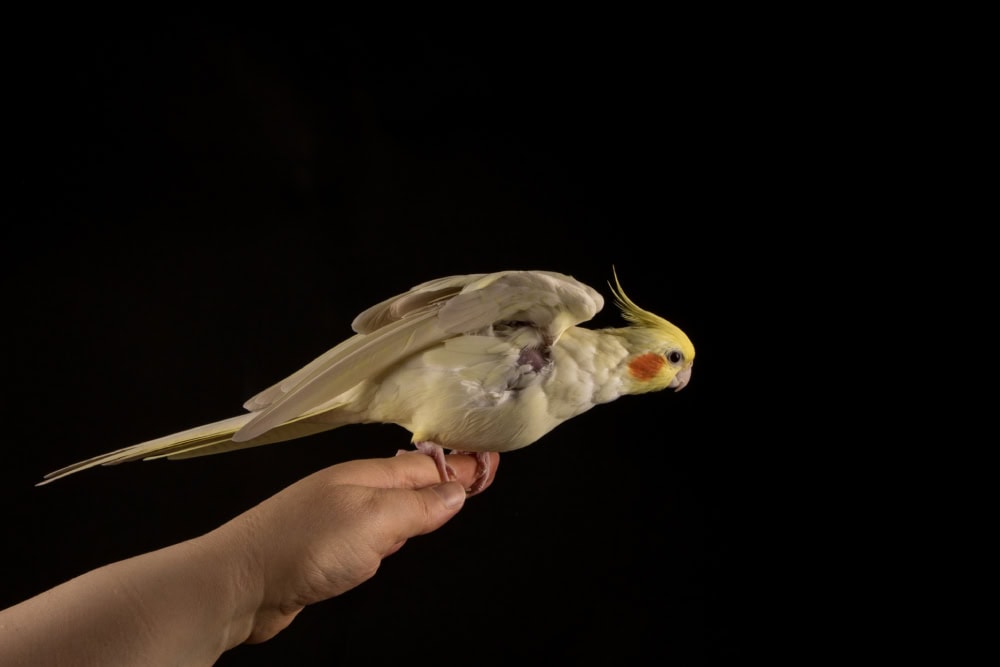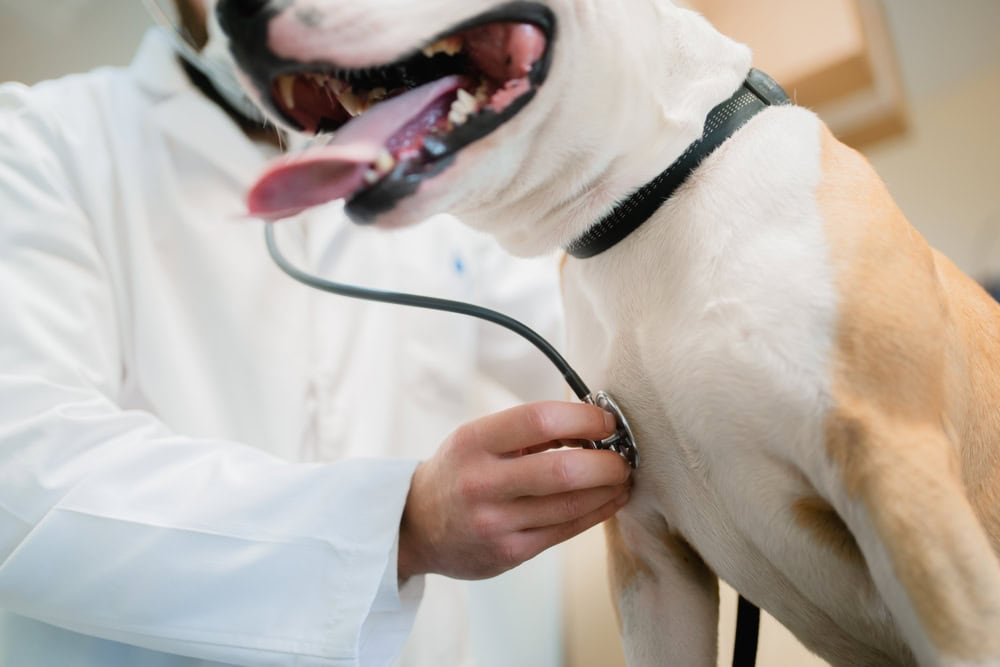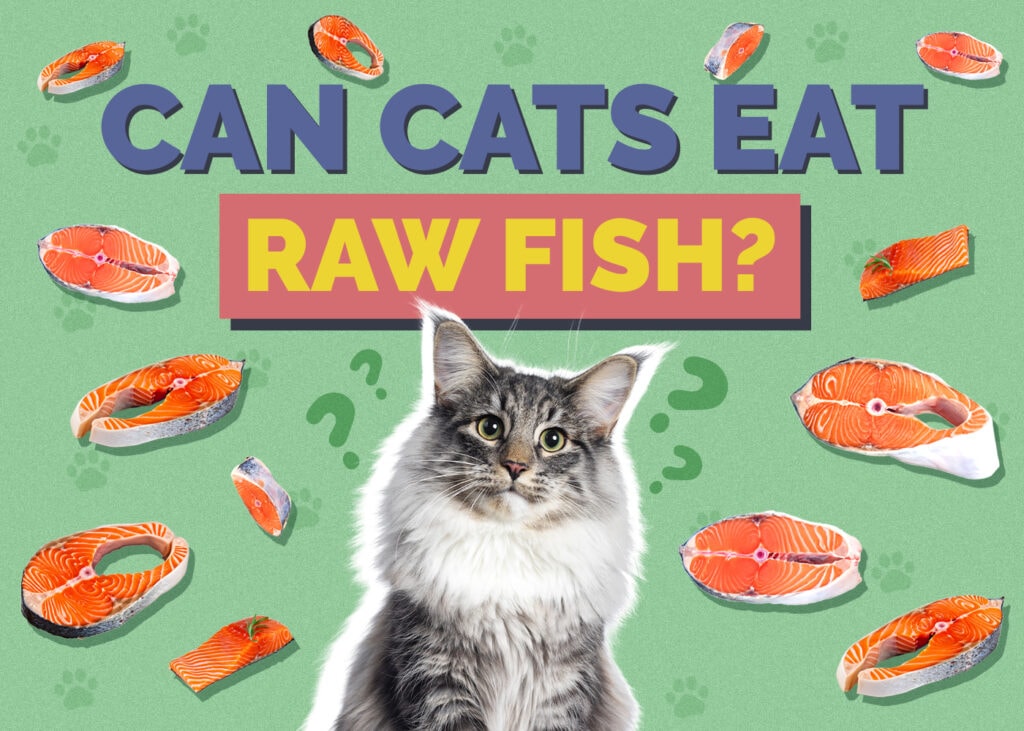
VET APPROVED

The information is current and up-to-date in accordance with the latest veterinarian research.
Learn more »Click to Skip Ahead
However, raw fish should never be fed to your cat because of serious health and safety concerns. Read on to learn why feeding raw fish can be dangerous to both you and your cat. You’ll also learn about some human foods that are safe to feed as treats, as well as how to make sure your cat is eating a balanced diet.
Why Eating Raw Fish Is Dangerous For Cats
In general, vets and animal nutrition experts recommend against feeding any type of raw fish to cats. The primary reason is that these foods naturally contain an enzyme called thiaminase, which can lead to a deficiency of vitamin B1, or thiamine, in your cat’s body. Eating raw fish could also result in your cat accidentally swallowing bones that could become lodged in their throat or intestines.
While raw diets are potentially beneficial for your cat when done properly, raw fish poses a very specific threat to your cat’s health. Most raw fish contains an enzyme called thiaminase, which destroys thiamine. Thiamine plays an essential role in the function of the cat’s central nervous system (CNS).
Over time, eating raw fish can result in your cat developing a thiamine deficiency. This can result in serious CNS issues, including seizures, paralysis, and vision loss. Left untreated, cats with this condition can also develop lesions on their brains.
While thiamine deficiency can generally be corrected, the treatment can be time-consuming and expensive. It’s better to avoid raw fish and its potential health problems altogether.

Safely Feeding Fish to Your Cat
We’ve learned that raw fish is dangerous for cats, but what if you cook it first or open a can of tuna for your kitty? In small amounts, cooked or canned fish make a tasty treat for your cat. Fish is also healthy for your cat because it contains omega-3 fatty acids, which have many nutritional benefits for cats.
If you feed your cat cooked fish, be extra careful to remove any bones first. Just like humans, cats could suffer from mercury poisoning if they consume too much of certain kinds of fish, such as tuna. And no matter how much your cat loves fish, it should never be the only thing they eat.
If you want to speak with a vet but don't want to leave home, you can head to PangoVet.com. It's our online service where you can talk to a vet online and get the advice you need for your cat — all at an affordable price!

Why Cats Can’t Live On Fish Alone
While you may have heard that cats are obligate carnivores, meaning they require nutrients from animal sources, that doesn’t mean you can toss them a hunk of fish or meat and call it a day. Some fish (particularly white fish) have lower amounts of taurine than red meat sources, and taurine is an essential amino acid for cats.
Cats need to eat food carefully crafted and balanced with the essential nutrients they require to stay healthy. The simplest way to ensure your cat gets what they need nutritionally is to feed a commercially prepared diet. An organization called the Association of American Feed Control Officers (AAFCO) established the basic nutritional requirements that all commercial cat foods must meet.
In some circumstances, owners may decide to feed homemade diets to their cats rather than commercial ones. These often contain fish as one of the main protein sources. Homemade diets can be time-consuming to prepare, but the primary difficulty is ensuring that the home-cooked food is nutritionally balanced. If you decide that you want to feed your cat this kind of diet, first talk to your veterinarian for help formulating recipes.
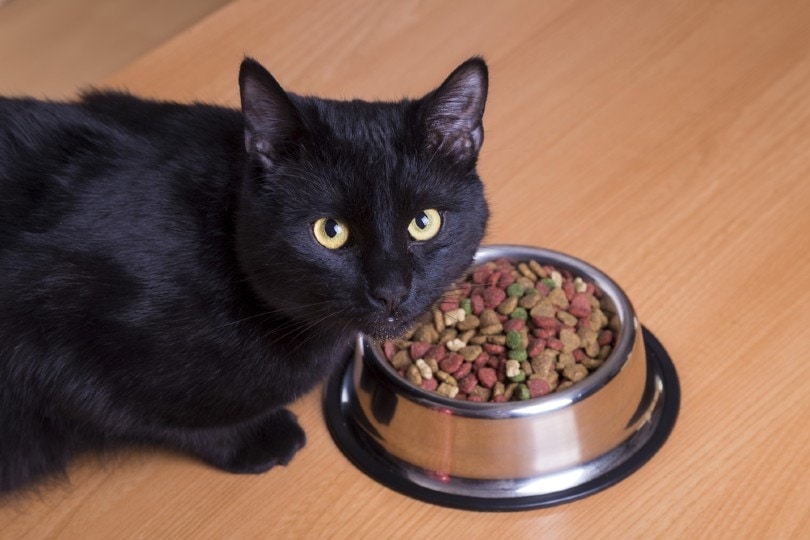
Other Human Foods Your Cat Can Eat
While your cat probably doesn’t think their food is as bland as you do, treats are always a welcome addition to anyone’s diet, human or feline. Since raw fish is off-limits, here are some safe human foods you can give your cat for treats:
- Chicken
- Steak
- Lamb
- Turkey
- Duck
- Eggs
Besides raw fish, here are some other foods you shouldn’t feed your cat:
- Onions and garlic
- Shallots
- Leeks
- Chocolate
- Bread dough
- Alcohol
- Caffeine
- Grapes and raisins
- Avocado
Play it safe and double-check with your vet before offering any human food to your cat. Just because a particular food isn’t necessarily dangerous to your cat doesn’t mean it’s healthy. And keep any treats, regardless of how nutritious, to no more than 10% of your cat’s total daily calories. Obesity is a common problem for cats and can be hard to correct.
Conclusion
While many humans love their sushi, cats should never eat raw fish, to avoid developing thiamine deficiency or other potential health problems. If your cat seems determined to share your dinner, stick to offering only foods you know are safe for them, and check with your vet if you ever have any concerns. Remember that cats have different nutritional requirements than humans and should eat a diet formulated to their specific health needs.
See also:
- Can Cats Eat Anchovies? Vet-Reviewed Facts & FAQ
- Can Cats Eat Salmon Skin? Vet Approved Nutrition Facts & FAQ
How useful was this post?
Click on a star to rate (you can leave written feedback after clicking submit)
Help us improve Hepper for pet parents!
Your feedback really matters.
What did you like about this post? Also how can we improve it?











